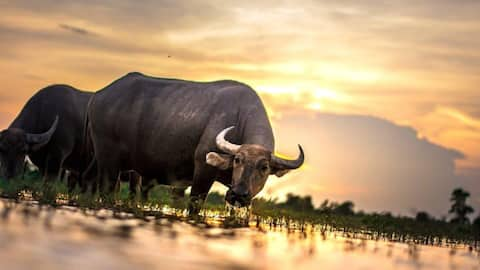World Wildlife Day: Role of indigenous communities in protecting wildlife
What's the story
Observed on March 3, World Wildlife Day emphasizes the need to protect global biodiversity.
Indigenous communities have long served as guardians of nature, preserving ecosystems through sustainable practices.
Their deep-rooted traditions, respect for wildlife, and ecological knowledge contribute significantly to conservation efforts.
Across the world, many indigenous groups actively protect endangered species and maintain natural habitats, and their crucial role must be highlighted.
Ancestral wisdom
Indigenous knowledge: A treasure for conservation
For centuries, indigenous communities have protected wildlife through ancestral knowledge and sustainable practices.
Their deep understanding of ecosystems helps monitor species and implement conservation strategies.
Many indigenous cultures consider forests, rivers, and mountains as sacred, leading them to protect these lands from deforestation, mining, and industrial expansion,
Studies show indigenous-managed lands often support richer biodiversity than state reserves, underscoring their vital role in conservation.
India
The Bishnoi community of India
The Bishnoi community of India has practiced wildlife conservation for over 500 years, guided by their religious principles that emphasize protecting all living beings.
They are known for safeguarding blackbucks, chinkaras, and other wildlife from poaching and habitat destruction.
Bishnoi villages serve as natural sanctuaries, where animals roam freely without fear. Their unwavering commitment to conservation has inspired modern environmental movements in India.
Africa
The Maasai people of East Africa
The Maasai community, native to Kenya and Tanzania, has developed conservation programs that protect lions and other large mammals.
Traditionally, young Maasai warriors hunted lions as a rite of passage.
However, today, initiatives like the "Lion Guardians Program" encourage them to track, monitor, and protect these predators instead, reducing human-wildlife conflicts and promoting coexistence.
Brazil
The Kayapo people of Brazil
Living in the Amazon rainforest, the Kayapo people have successfully protected vast forested lands from deforestation, illegal mining, and poaching.
Their territories, covering millions of acres, act as a natural refuge for jaguars, giant otters, and countless bird species.
By opposing harmful industrial projects and collaborating with conservationists, the Kayapo safeguard one of the world's most biodiverse regions.
Japan
The Ainu people of Japan
The Ainu, an indigenous group from Japan's Hokkaido region, hold a deep spiritual connection with nature.
Their traditions emphasize respect for bears, fish, and forest ecosystems.
They practice sustainable hunting and fishing, ensuring animal populations remain balanced.
The revival of Ainu conservation techniques, combined with modern environmental policies, helps restore biodiversity in their homeland.
Gaurdians
Recognizing indigenous leadership in conservation
Indigenous communities are at the forefront of wildlife protection, offering time-tested solutions to modern environmental challenges.
Supporting their rights, land ownership, and conservation initiatives is essential for preserving biodiversity.
As we celebrate World Wildlife Day 2025, it is crucial to acknowledge and empower these guardians of nature, ensuring a sustainable future for all species.
